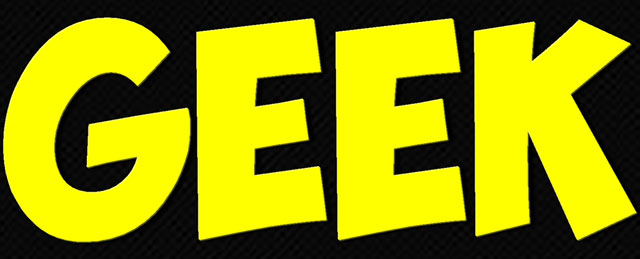 Richard Garriott, US entrepreneur, developer of Ultima, astronaut and all-round geek idol, knows all about geek culture. Raised in a town boasting several astronauts, including his father, he was encouraged to follow his passions in science and computing, subjects that may have otherwise resulted in him becoming an outsider in other towns in his native state of Texas.
Richard Garriott, US entrepreneur, developer of Ultima, astronaut and all-round geek idol, knows all about geek culture. Raised in a town boasting several astronauts, including his father, he was encouraged to follow his passions in science and computing, subjects that may have otherwise resulted in him becoming an outsider in other towns in his native state of Texas.
According to the book Dungeons and Dreamers by Brad King and John Borland, however, Garriott’s father had his concerns about Richard following his dream of game development. Had he followed his father’s advice, we would never have had the chance to explore the rich, detailed worlds in the Ultima series — or the simple pleasure of blowing away demons with the BFG 9000 in Doom.
Garriott’s life highlights important aspects of geek culture; a fascination with a certain medium or media, such as gaming, and being unashamed of these passions.
However, to know where geek culture is headed, we first have to find out where we came from.
The word “geek” is most likely a variant of the Dutch word “gek”, which describes a fool or a simpleton, according to the Online Etymology Dictionary.
In modern English usage, geek was used to describe the performers in macabre and chaotic sideshows in circuses or carnivals during the early 20th century who would bite the heads off chickens to entertain audiences.
The difference between a freak show and a geek show was that the performers in the former were born with a physical appearance that set them apart, while the latter were society’s outcasts who would perform bizarre acts voluntarily — often in exchange for alcohol or narcotics.
Not quite the most appealing origin story for a culture that ever was.
Thankfully, for chickens and humanity alike, these performances gradually lost popularity until they eventually disappeared with time.
It was only with the rise of computing in the 1980s that the term “geek” would make a reappearance in mainstream references.
The word began to shift from describing a bizarre sideshow performer to someone who had an interest in computers and had a higher than average intelligence. This was an archetype which was often interchangeable with words such as “nerd” and “dork”, although debate still rages on today about what separates the identities of each.
Calling someone a geek during the 1980s and early 1990s was an insult that came with a sting. It was meant to cause pain, barbing itself in the victim and slowly letting the poisonous connotations of social ineptitude seep under the skin. To the bullies, geeks were still society’s outcasts — without the chicken-biting part — and deserved ridicule.
Like many derogatory words, however, those who were labelled with the title began to describe themselves as geeks — essentially owning the word, reappropriating the term and taking control of its connotations.
Slowly but surely, geeks revelled in their fascinations such as film, technology, art and literature, and these became extensions of their identities. With an increasing number of people interested in similar pursuits — and an increasing pride in “geeky” things — a new culture grew. It suddenly began to hold currency in society.

Geek culture began to infiltrate mainstream culture, mingling together until the point we have reached today where it is often impossible to separate the two.
Car manufacturers use Star Wars references in their adverts, captains of industry such as Steve Jobs and JJ Abrams embody cool success, major clothing retailers emblazon the word across T-shirts and “geek rockers” like Weezer have been able to enjoy both critical acclaim and chart success.
It’s clear that geek culture is pervasive in today’s society. Where once technology was left to the geeks, the democratisation of technology now means everyone with a smartphone is essentially a geek (in the 1980s sense of the word).
The popularity of today’s superhero and sci-fi films among the general population also points to the assimilation of what perhaps would have once been enjoyed by a relatively small group of people.
Today, there is a huge selection of media, events and conferences that take place across the world to celebrate the geek culture in its various formats, especially within the areas of gaming and coding.
One is this year’s Entelect Challenge, where participants — programmers, developers, coding enthusiasts and graphical user interface (GUI) designers — are asked to put their own spin on the 1980s classic game Bomberman by writing an artificial intelligence program that can creatively outsmart and outlast their opponents, or to design an innovative GUI for the game.
The culture we see at the yearly challenge is not a motley group of outsiders; it is a gathering of innovators who are making their mark on society.
It is clear that geeks are no longer society’s outcasts. We are embodied by people like Richard Garriott because we are captains of industry, leaders, creatives and disruptors who are unashamed of our passions. What were once considered geeky pursuits such as gaming and programming now hold major social currency and are increasingly in demand as career options as well as hobbies.
We’ve come a long way from biting the heads off chickens.
- Timothy Kroon is GM of professional services at Entelect




